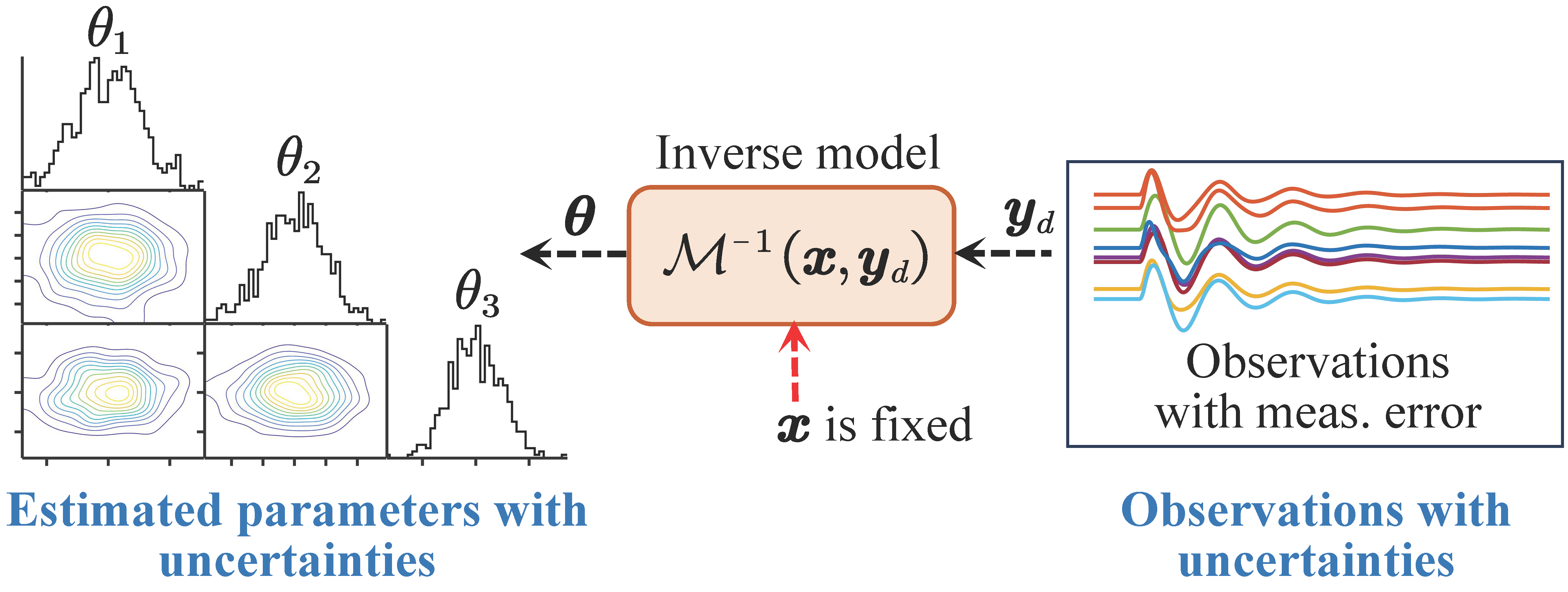Modern power systems face increasing levels of uncertainty from renewable generation, time-varying loads, modeling limitations and measurement errors. These uncertainties propagate through the system and impact analysis related to steady-state conditions and dynamic performance. Consequently, my primary research interests lie in the uncertainty quantification (UQ) framework for power systems. This framework is dedicated to enhancing the efficiency and precision of power system planning. It also aims to ensure the secure operation of power systems, as well as to achieve precise estimation and identification for power system modeling.

I concentrate on both practical applications within the system and the development of underlying algorithms. A comprehensive framework has been established to address a broad spectrum of uncertainty-related issues in power systems.
This framework includes both forward and inverse uncertainty quantification problems. The forward problems focus on risk assessment and stability analysis, which are crucial for proactive system management. Conversely, the inverse problems address parameter estimation, essential for system modeling and control.

Forward problem primarily addresses the propagation of input uncertainties through power system to quantify their consequent effects on the outputs.
We have developed various methodologies for power system planning and operation, including a wide range of applications such as probabilistic load margin assessment, rare event risk analysis, probabilistic stability assessment and Bayesian dynamic trajectory predictions. We try to answer the following questions in general settings: 1) How to efficiently handle massive topology changes in the power system? 2) How to mitigate the "curse of dimensionality" issue for both input and output spaces?
Selected Publications
- Bendong Tan, Junbo Zhao and Le Xie., "Transferable deep kernel emulator for probabilistic load margin assessment with topology changes, uncertain renewable generations and loads," IEEE Transactions on Power Systems, vol. 38, no. 6, pp. 5740-5754, Nov. 2023.
- Bendong Tan, Junbo Zhao, "Debiased uncertainty quantification approach for probabilistic transient stability assessment," IEEE Transactions on Power Systems, vol. 38, no. 5, pp. 4954-4957, Sept. 2023.
- Bendong Tan, Junbo Zhao and Yousu Chen, "Scalable risk assessment of rare events in power systems with uncertain wind generation and loads," IEEE Transactions on Power Systems, 2024.
- Bendong Tan, Junbo Zhao, "Bayesian post-fault power system dynamic trajectory prediction," IEEE Transactions on Power Systems, 2025.

Contrarily, the inverse problem is centered on deducing unknown model parameters and elucidating its underlying uncertainties from power system observations, minimizing the disparity between theoretical model response and observed data.
We have developed multiple techniques in power system monitoring and modeling, such as composite load modeling and inertia estimation for inverter-based resources (IBRs). We try to answer the following questions in general settings: 1) How to identify critical parameters that have large impacts on the system response? 2) How to tackle data quality issues? 3) How to identify a time-varying dynamic system?
Selected Publications
- Bendong Tan, Junbo Zhao, "Data-driven adaptive unscented Kalman filter for time-varying inertia and damping estimation of utility-scale IBRs considering current limiter," IEEE Transactions on Power Systems, 2024, doi: 10.1109/TPWRS.2024.3379956.
- Bendong Tan, Junbo Zhao and Nan Duan, "Amortized Bayesian parameter estimation approach for WECC composite load model," IEEE Transactions on Power Systems, vol. 39, no. 1, pp. 1517-1529, Jan. 2024.
- Bendong Tan, Junbo Zhao, "Data-driven time-varying inertia estimation of inverter-based resources," IEEE Transactions on Power Systems, vol. 38, no. 5, pp. 4954-4957, Sept. 2023.
- Bendong Tan, Junbo Zhao and Marcos Netto, "A general decentralized dynamic state estimation with synchronous generator magnetic saturation," IEEE Transactions on Power Systems, vol. 38, no. 1, pp. 960-963, Jan. 2023
- Bendong Tan, Junbo Zhao, Naiyuan Chiang and Nan Duan, "High-dimension Bayesian parameter estimation for WECC composite load model using realistic event measurements," IEEE Transactions on Power Systems, 2025.
Modern power systems face increasing levels of uncertainty from renewable generation, time-varying loads, modeling limitations and measurement errors. These uncertainties propagate through the system and impact analysis related to steady-state conditions and dynamic performance. Consequently, my primary research interests lie in the uncertainty quantification framework for power systems. This framework is dedicated to enhancing the efficiency and precision of power system planning. It also aims to ensure the secure operation of power systems, as well as to achieve precise estimation and identification for power system modeling.
